Iquique, The Big North, Chile

Caramor - sailing around the world
Franco Ferrero / Kath Mcnulty
Fri 25 Aug 2017 02:43
20:13.38S 70:08.52W Remember what I said about La Serena being, as far as most Chileans are concerned, at the extreme north of the country? Well, the bus ride to Iquique was going to take 17 hours on a good road, that is 17 hours further north than the 'far north'! As soon as the bus left La Serena, we entered the Atacama desert, and it was beautiful. The rain these past few months, after nearly ten years of drought, had transformed the landscape. Millions of flower seeds had germinated in large carpets of blue, white, purple and red, a phenomena called 'the flowering desert' which only happens every few years and attracts tourists who flock to witness the miracle. As the bus chugged along, the sun set, lighting up the wilderness with crimson rays. We passed the small town of Vallenar and shortly afterwards night fell. We were now rolling through the driest place on earth and I could feel the moisture being sucked out of my skin. We dozed, only to wake with lancing pain in our ears. For some reason the pressure kept changing, maybe we were going up and down a lot, and our ears weren't decompressing automatically, as if our ear lubricant had evaporated. At 3:30am we were woken up by the bright lights of Antofagasta, a city on the desert coast which serves the mines inland. Before 1879, this port was Bolivian and its loss to the Chileans has left Bolivia without access to the sea. At daybreak we looked out of the window. There wasn't a blade of grass to be seen, only dust, as far as the eye could see and the town of Iquique in the distance. 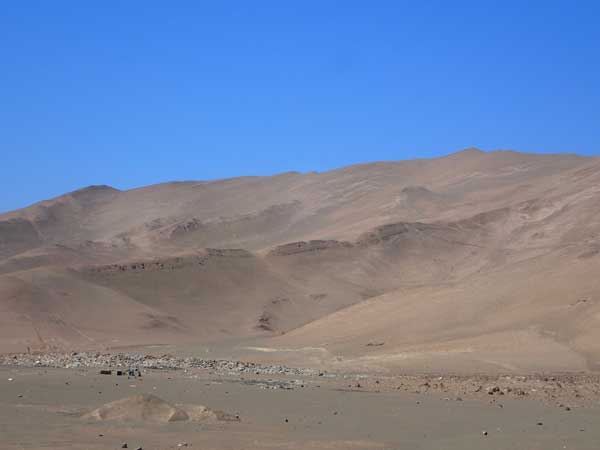 Atacama desert 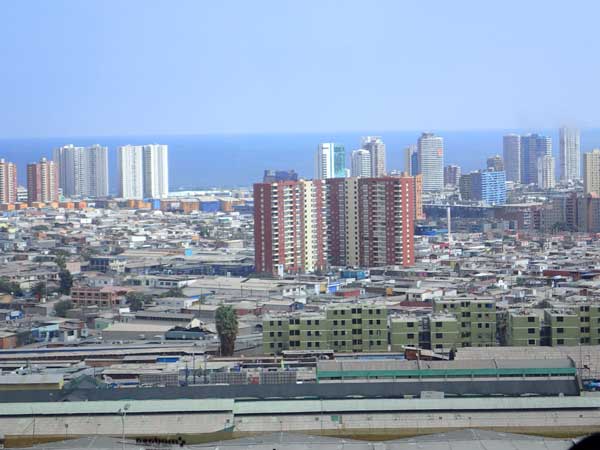 Arriving in Iquique Iquique is a long thin strip of a town, stuck between the ocean breakers and the coastal mountains. As we drove through, we were amazed to see hordes of locals out on the promenade, running, cycling, taking gym classes or watching the surf, boards under their arms. Nowhere in Chile have we seen that many people participating in sport. 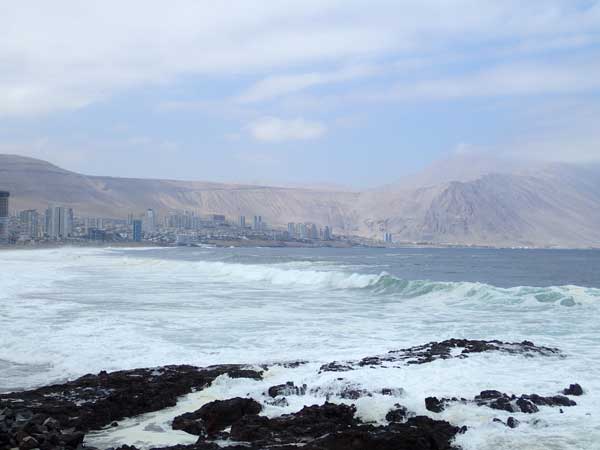 Iquique between ocean and mountain 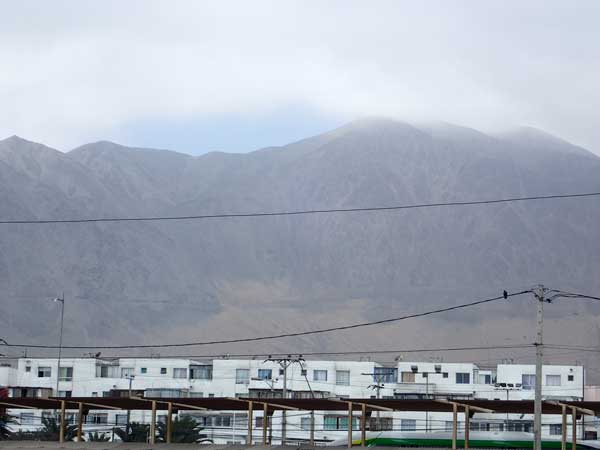 The coastal range looms above the town After independence from Spain in 1821, Iquique became part of Peru. From the 1830s the mining of saltpetre brought commerce and wealth to the small port. Its success attracted foreigners who came with European architecture and ideas. The saltpetre barons accumulated wealth and enjoyed a lifestyle akin to that in any European capital, the theatre hosted the best European productions and at its heyday, more champagne was drunk per capita in this arid dusty corner than anywhere else in the world. 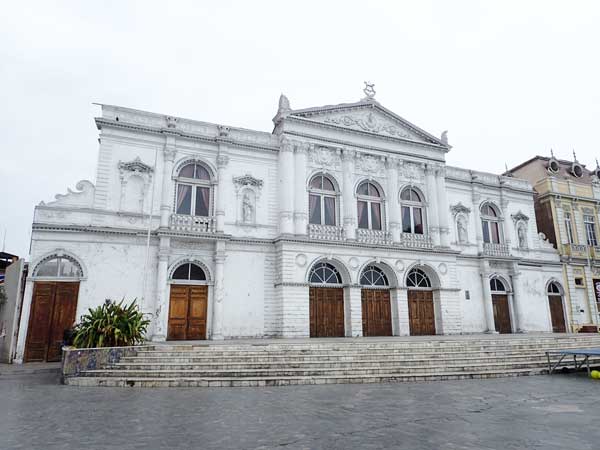 The theatre 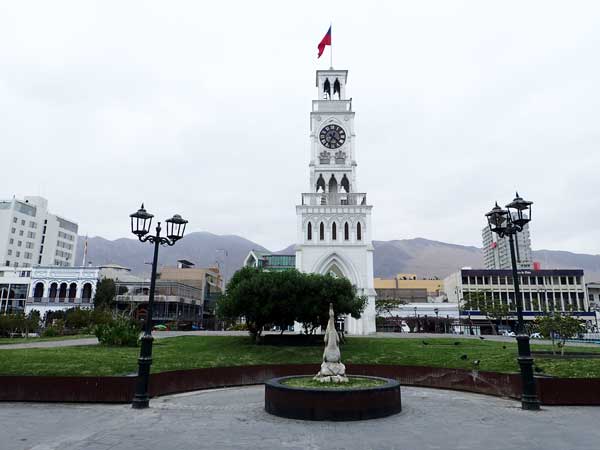 Iquique main square 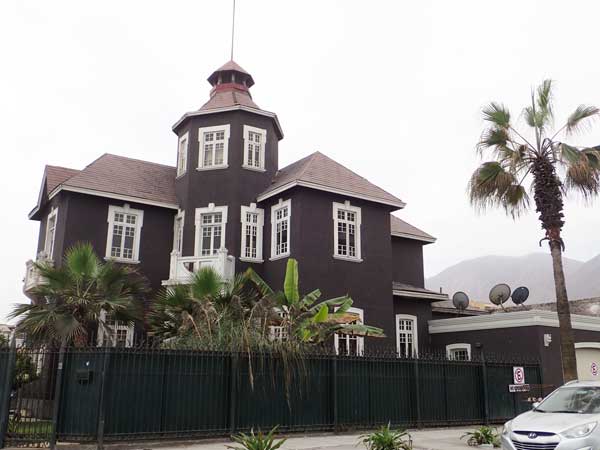 A mansion from the saltpetre era The War of the Pacific broke out in 1879 between Chile and Bolivia/Peru and Iquique was the theatre for the most decisive naval battle; the sinking of the Esmeralda and the death of Captain Prat of the Chilean Navy. Prat was made a hero posthumously. Meanwhile on the same day, Captain Condel turned his ship around and lured the Huascar, the largest Peruvian man of war onto a reef, sinking it and thus changing the odds in favour of Chile. Iquique and the precious saltpetre rich hinterland was claimed by Chile. History is cruel, Condel is barely remembered, whereas Prat remains THE national hero. I never miss a chance to explain what "prat" means in English and that in my opinion he lived up to his name! The Chileans, good naturedly indulge me but continue to worship the man. 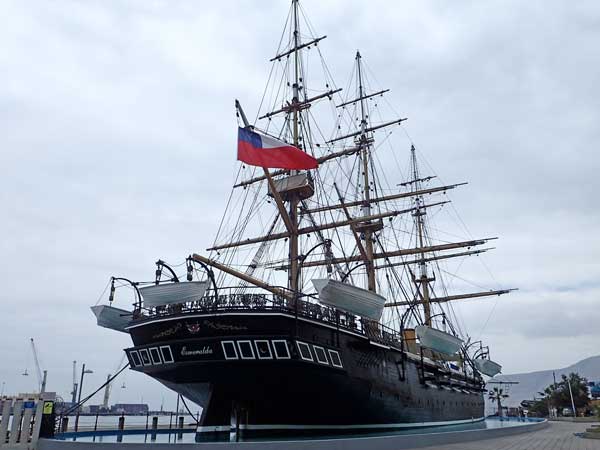 A replica of the Esmeralda 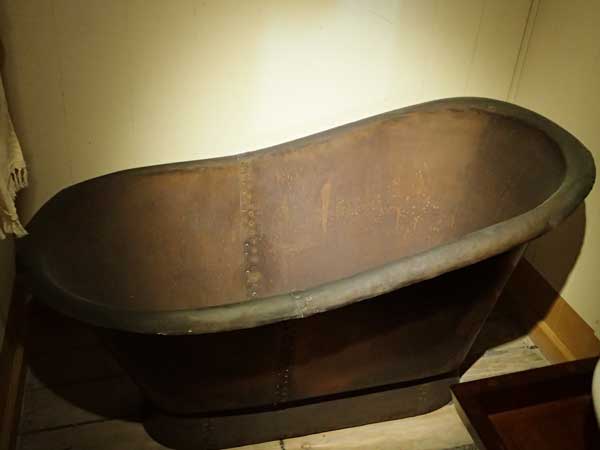 Every officer had a bath tub - more comfortable than Caramor 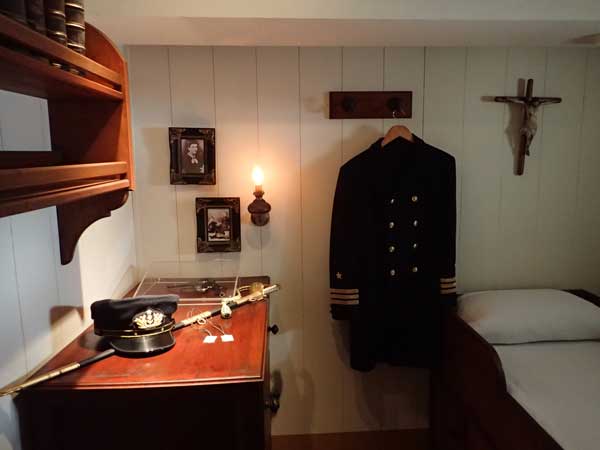 Arturo Prat’s cabin My plan to go surfing wasn't looking likely. The waves were huge and dumping, we were tired and the surf shop was closed. Instead we enjoyed wandering around the town and in the evening attended a free Chilean cinema festival in the square. 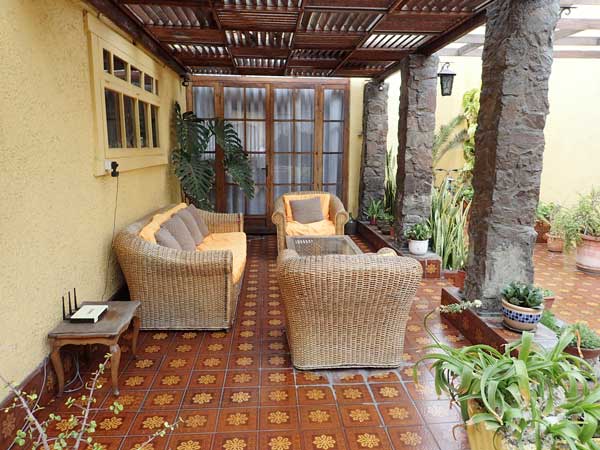 Our hostel was in an old building near the beach - the breakfast veranda 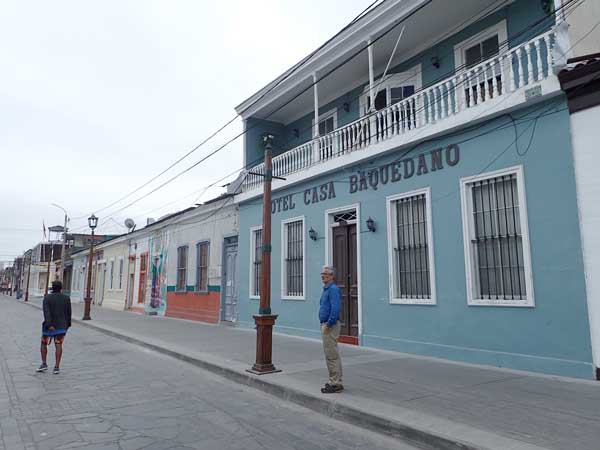 The main street between the promenade and the square is pedestrianised ... 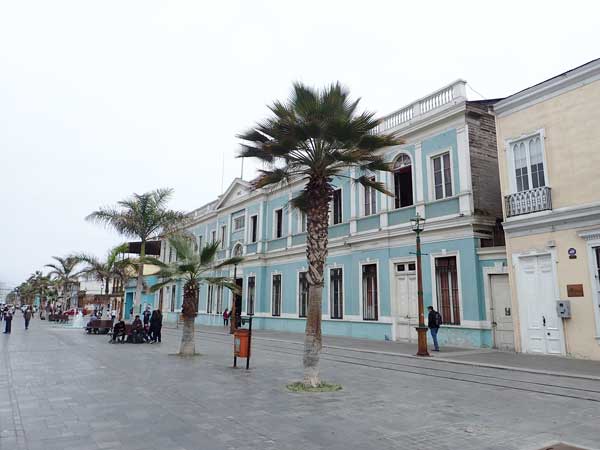 … and very pleasant 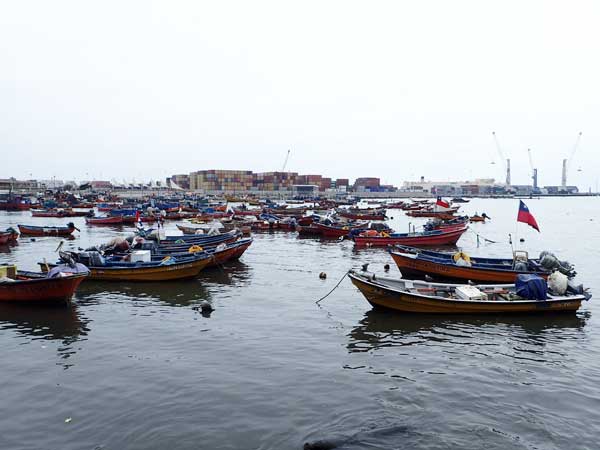 The fishing port 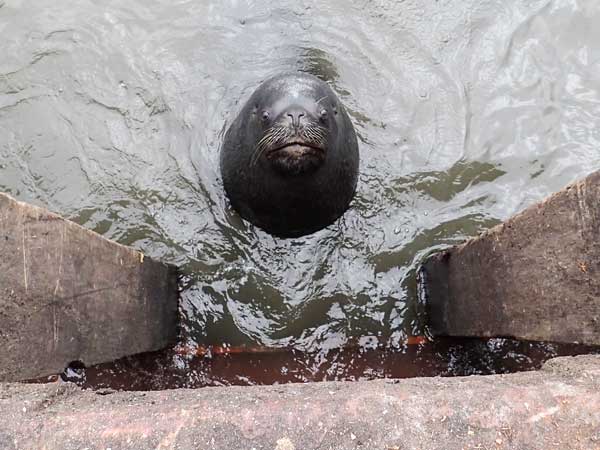 A sea lion expecting us to throw him some fish 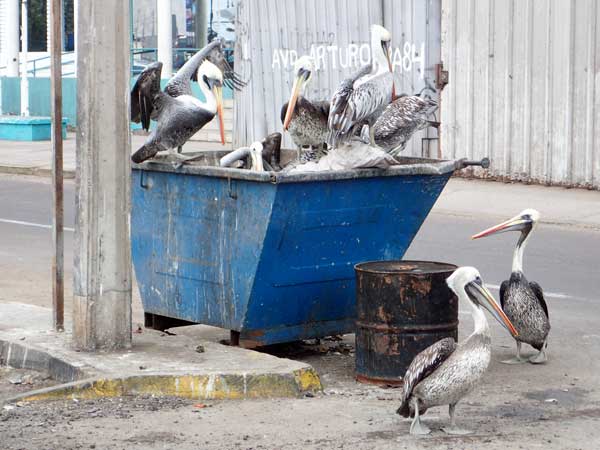 Pelicans behaving badly  Franco and pelican Our bus to Arica was at 2pm so in the morning we strolled along the prom. We walked as far as a skateboard park. The rollerbladers were the most active, if not that good. The skateboarders spent more time chatting in the corner than exercising and a lone BMX biker, delighted to at last have an audience performed some fairly remarkable stunts. We had expected Iquique to be male dominated and geared towards the mining industry, instead it was very cosmopolitan, with possibly more women out and about than in Valdivia. 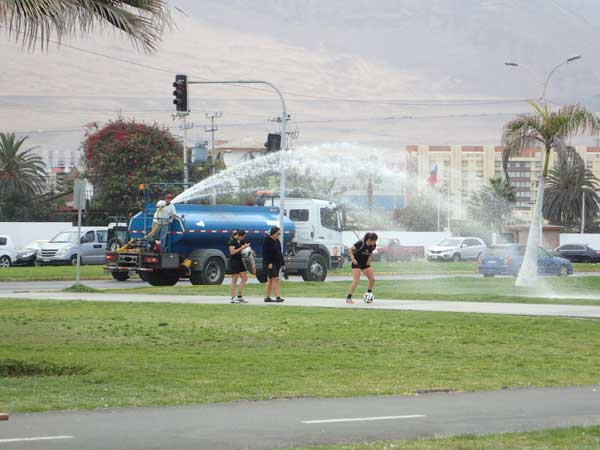 No expense spared to maintain the narrow strip of grass, when you live in the driest place on earth |